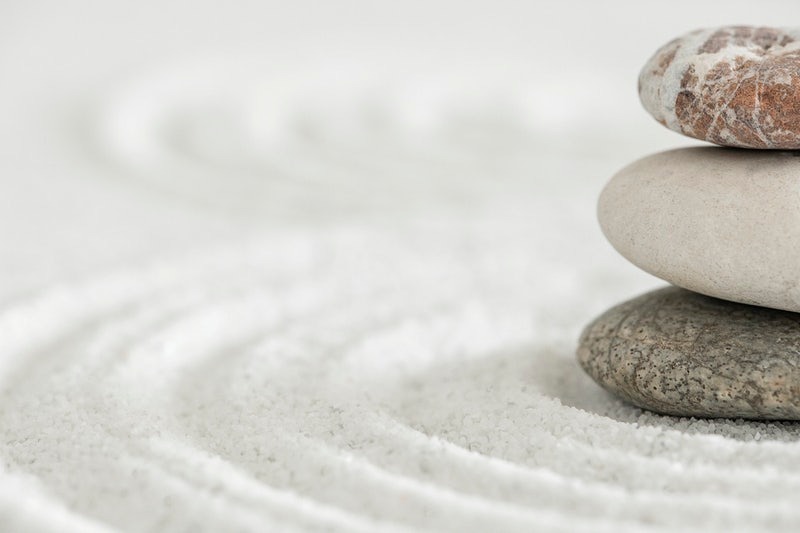We are products of our lived experiences. Those experiences have connections with our mind, body, and spirit. Often the causes of addiction come from many different areas of life, such as trauma, emotional and physical pain, and daily stresses. A whole-body approach to treatment takes all of these parts into consideration to treat the “whole person.” In order to dig into the underlying causes of addiction, each part of us—mind, body, and spirit—need dedicated attention.
The effects of addiction don’t happen in isolation. Every aspect of life is impacted, from social to physical. When in recovery, you are trying to build a new life through new habits, learning about yourself, and deciding what kind of life you want to create. There may be areas of your life that became neglected during active addiction that need special care in treatment. Therefore, it is essential that your treatment is holistic and crafted to meet your unique needs of the body, mind, and spirit.
Treating the Mind
Our minds carry memories, traumas, and painful emotions that may have partially led us to addiction in the first place. Addressing the underlying causes of addiction is an essential piece of recovery. Individual therapy sessions can explore the history and traumas that led to drug abuse. When we understand that piece, we are better equipped to make a plan for recovery.
Different Methods for Approaching Mind Healing
In treatment, we can recognize our triggers and learn coping strategies to mitigate them. One approach in doing so is cognitive-behavioral therapy (CBT), where thoughts and behaviors are identified regarding oneself, relationships, and surroundings to change them for the better.
Brainspotting is another therapy where eye positions link to a brainspot, a specific eye position that uncovers a traumatic experience or painful emotion. Therapists work with clients to position their eyes to target the source of the emotion. Therapists often use a pointer to guide people to find their brain spots. This technique is a way to uncover the underlying causes of triggers and behaviors to heal.
Another approach that can be used in tandem with therapy is establishing a mindfulness practice. Mindfulness practices have been found to reduce the risk of substance abuse relapse and decrease distress. This is because mindfulness strengthens our ability to notice and cope with the discomfort of cravings. When we feel familiar sensations resurging that we used to turn to substances to soothe, we can instead acknowledge them and let them pass.
Healing the Body
Intentional movement is a way to reconnect with the body. When we reconnect with our body, we begin to tune into the emotions stored in it. Through intentional movement, we can process and release these emotions. Yoga is a form of intentional movement that has been found to benefit addiction recovery, specifically a decrease in cravings. Other benefits include relieving stress, improving mental and emotional health, and relieving lower back and neck pain.
In addition to exploring different forms of exercise, looking into nutrition can also be beneficial for healing the body. Finding fulfilling meals you enjoy preparing and eating can be an excellent next step to nourishing your body.
Spirit Healing
Reconnecting with a sense of purpose and meaning is essential for recovery and looks different for everyone. It can involve a 12-Step program, mindfulness meditation, yoga, and more. Digging deep into your purpose and aligning with a practice that allows you to explore that can be helpful in recovery.
Sound baths are a type of meditative experience you can use to heal your spirit. Despite the name, sound baths are not liquid baths; instead, you are bathed in soothing and empowering sound waves. The waves come from various sources such as gongs, singing bowls, percussion, and chimes. A small observational study showed that sound meditation helps reduce tension, fatigue, anger, and depressed mood while increasing spiritual well-being. When paired with other treatments such as CBT, sound bath therapy is an approach that can be highly effective.
Bringing It All Together
Having a diverse range of treatment methods that address the whole person is essential to a healthy and sustained recovery. The effects of a mind, body, and spirit approach to treatment are overarching. For example, yoga may help the body by releasing stress, but it also nourishes the mind by focusing on the breath. All of these treatments build off each other to create a holistic recovery experience.
One person doesn’t have to do all of these treatments at once to find healing. You can pick the ones that resonate most with your situation and interests. Your treatment can be tailored to meet your specific needs. All of us have unique stories and experiences that warrant different approaches to recovery.
Addiction affects people in different ways, which means that treatment cannot follow a one-size-fits-all approach. Your recovery journey is unique to you. When choosing a treatment facility, it is essential to have a variety of options available to meet your needs. At Dream Recovery, we understand that addiction is a multi-faceted problem requiring a multi-faceted solution. Our treatments reflect this. We explore exercise, nutrition, education and utilize a number of holistic techniques such as yoga, sound bath therapy, and mindfulness. Our outpatient programs are designed to be flexible, so you can have treatment that works around your schedule. It can be challenging to get started, and it is particularly difficult to find a place that can tailor treatment to suit your unique needs. We offer a selection of treatments so that we can meet you where you are in your journey to recovery. Call Dream Recovery today at (949) 732-1960 to learn more about our program.


Recent Comments